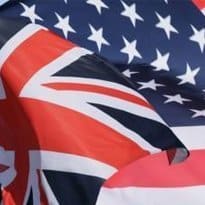A memorandum of understanding signed by the US and UK will help to create the world’s largest single market for health care applications, the health secretary has said.
The MoU focuses on sharing common values around healthcare informatics and making it easier for small and medium-sized enterprises to get a foot in the door on both sides of the Atlantic.
Speaking at a Cambridge Health Network event in London last week, Jeremy Hunt said the “ground breaking” agreement, signed on 23 January, will “create the world’s largest single market when it comes to health care apps”.
“So any app developed in the US and approved by the US authorities will be automatically approved in the UK and any app approved in the UK will be automatically approved in the US,” he said.
An NHS England spokesperson told EHI the health secretary was referring to applications when he spoke and therefore vendor certification, rather than specifically smart phone apps.
However, as part of the MOU, the two countries are actively sharing the processes around the review of apps and certification of medical devices.
“The UK has defined an approach covering both non-medical device and medical device apps, but it is recognised that the landscape of reviewing and recommending apps is different in the US and so we are working with US colleagues on how this could be applied,” the spokesperson said.
The US Food and Drug Administration issued its final guidance on how it will regulate health apps last October, focusing on those that turn a mobile platform into a regulated device. It said the vast majority of mobile apps will not be regulated.
The formal approval process in the UK for apps that are defined as medical devices is governed by European regulations.
Ewan Davis, founder of the Healthcare App Network for Development and Innovation, said: “It clearly would be sensible to have a common approach between the European regulator and the FDA, so something that takes that forward is obviously to be welcomed,” he said.
Davis said his understanding is that the UK Medicines and Healthcare Products Regulatory Agency is working on an international collaboration between various regulators to try, as far as possible, to “harmonise” their various arrangements for approving medical device apps.
“If you are a supplier you want to be able to do it once and know it will meet the basic requirements of Europe and the US and other regulators around the world,” he said.
While it makes sense to agree a level of co-ordination, an automatic approval process could result in apps being approved in the UK which are not safe or appropriate for use here.
“That would not be an appropriate position to take because it’s entirely possible that good quality apps developed for use in the US environment would not be appropriate for use in the UK without significant localisation,” explained Davis.
A potential cause of confusion would be the use of different units of measurement used by the two countries.
Also, “how it links in and signposts into the rest of the system, because the system in the US is very different”, Davis added.
Some substantive bilateral announcements related to the MOU are expected to be made in June

